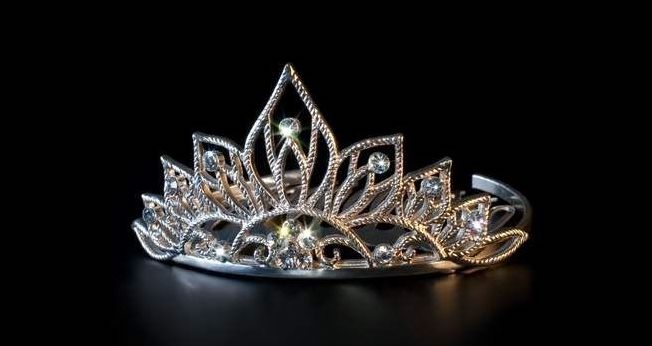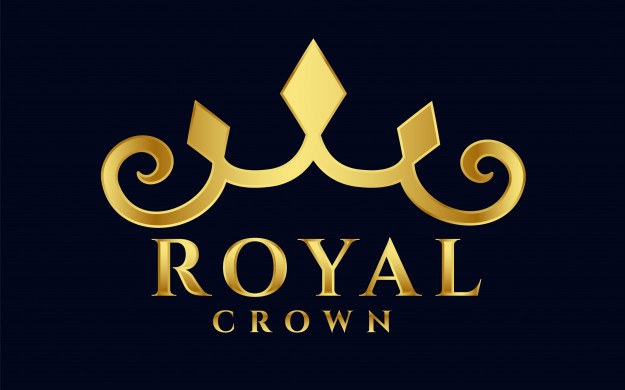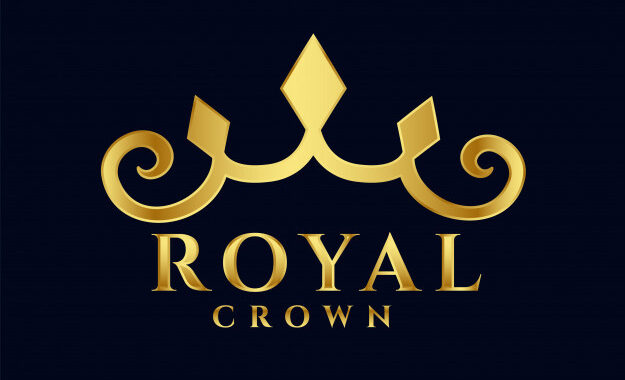The first day of Purim in 2021 is on Friday, February 26. Although Purim is not included in the official list of the Appointed Times of the LORD (Lev. 23), it is a special celebration of remembering the sovereignty of God and the protection of His people as recorded in the book of Esther. To read more about how Purim is celebrated today, click here: Purim
The Kingdom
One of the themes that is woven into the book of Esther is that of the crown in the kingdom. We see this clearly illustrated in the first few verses of the book of Esther as it describes how King Ahasuerus ruled over the kingdom of Media and Persia at that time:
Now it took place in the days of Ahasuerus, the Ahasuerus who reigned from India to Ethiopia over 127 provinces, in those days as King Ahasuerus sat on his royal throne which was at the citadel in Susa, in the third year of his reign he gave a banquet for all his princes and attendants, the army officers of Persia and Media, the nobles and the princes of his provinces being in his presence. – Esther 1:1-3
King Ahasuerus used his position as king to bless his princes, nobles, and officers along with all of those in his kingdom by celebrating for half a year, 180 days. After the 180 days of celebration ended the king hosted another banquet for seven days for all of the people in the capital city of Susa (Esther 1:4-5). Life was good in the kingdom of Ahasuerus.
It was at the end of this final seven-day banquet that King Ahasuerus was in good spirits and wanted to showoff his beautiful wife before his guests, however, she did not honor the king’s request:
On the seventh day, when the heart of the king was merry with wine, he commanded Mehuman, Biztha, Harbona, Bigtha, Abagtha, Zethar and Carkas, the seven eunuchs who served in the presence of King Ahasuerus, to bring Queen Vashti before the king with her royal crown in order to display her beauty to the people and the princes, for she was beautiful. But Queen Vashti refused to come at the king’s command delivered by the eunuchs. Then the king became very angry and his wrath burned within him. – Esther 1:10-12
As a result of Queen Vashti’s refusal of the king’s request, the king was counseled to dispose of Vashti as queen and to give her position to another.
The Royal Crown
The queen in the kingdom holds a powerful position as the wife of the king and the mother of his children. It was in her position as queen that King Ahasuerus requested that she come to him, “with her royal crown…” on her head (Esther 1:11).
Queen Vashti somehow thought that the royal crown on her head gave her the authority to refuse the other royal crown in the kingdom, the crown worn by the king. Queen Vashti misunderstood the authority of the crown that rested on her head and, as a result, a proposal was made to remove the crown from her head:
If it pleases the king, let a royal edict be issued by him and let it be written in the laws of Persia and Media so that it cannot be repealed, that Vashti may no longer come into the presence of King Ahasuerus, and let the king give her royal position to another who is more worthy than she. – Esther 1:19
The king agreed with this proposal and Queen Vashti was dethroned.
The phrase the “royal crown” in Hebrew is כתר מלכות – Keter Malchut. The word Keter for crown is only used three times in all of the Hebrew Scriptures and all three times are found here in the book of Esther. In fact, it is this Keter Malchut – royal crown that guides the storyline of the book of Esther and determines the outcome for the Jewish people in the kingdom at that time.

Queen Esther
A search was made of all of the beautiful young virgins in the kingdom and, through a process of coming before the king, a young Jewish orphan named Esther was chosen:
The king loved Esther more than all the women, and she found favor and kindness with him more than all the virgins, so that he set the royal crown on her head and made her queen instead of Vashti. – Esther 2:17
It is here that we see the second occurrence of the phrase Keter Malchut – royal crown in the book of Esther. Queen Esther was given the unique privilege of rising from a descendant of Jewish exiles to become queen in the kingdom of Persia.
It was while Esther was queen that a certain man named Haman was promoted in the kingdom and became a trusted confidant of the king. Haman hated the Jewish people and had a special hatred for Mordecai the Jew, who just happened to be Esther’s uncle. Haman plotted against the Jews and used his position with the king to enact an edict which would permit the extermination of the Jewish people from the kingdom.
Haman & Mordecai
In a series of events that only God could orchestrate, Mordecai foiled a plot of two officials in the kingdom who wanted to kill the king. This good deed by Mordecai initially went unrewarded by the king, however, during a sleepless night King Ahasuerus had the official records read to him and heard about the good deed that Mordecai had done to save the king’s life. When the king discovered that Mordecai had never been rewarded for this good deed he determined to remedy the situation and to honor him in some manner.
It was at this very hour that Haman went to the court of the king in order to receive permission to have Mordecai hanged on the gallows, however, Haman was in for a huge surprise, as is chronicled in the book of Esther:
So Haman came in and the king said to him, “What is to be done for the man whom the king desires to honor?” And Haman said to himself, “Whom would the king desire to honor more than me?” Then Haman said to the king, “For the man whom the king desires to honor, let them bring a royal robe which the king has worn, and the horse on which the king has ridden, and on whose head a royal crown has been placed; and let the robe and the horse be handed over to one of the king’s most noble princes and let them array the man whom the king desires to honor and lead him on horseback through the city square, and proclaim before him, ‘Thus it shall be done to the man whom the king desires to honor.’” Then the king said to Haman, “Take quickly the robes and the horse as you have said, and do so for Mordecai the Jew, who is sitting at the king’s gate; do not fall short in anything of all that you have said.” – Esther 6:6-10
The tables were quickly turned and Haman was commanded to honor the very man whom he had planned to murder, Mordecai the Jew.
The King’s Royal Horse
In Haman’s pride and arrogance, he thought that the king desired to honor him and Haman laid out the ceremony of honor that he desired for himself, which included wearing royal garments which the king had worn and riding on the king’s royal horse on whose head “a royal crown has been placed” (Esther 6:8).
This is now the third time that we read the phrase Keter Malchut – royal crown in the book of Esther. It is significant in many ways because it shows that Haman desired royal status more than anything. By wearing the king’s garments and riding on the king’s horse with the royal crown upon the head of the horse, Haman would have been elevated before the people as a man of power and authority in the kingdom. Instead, he had to grant this honor to Mordecai the Jew.
The significance of the king’s horse is seen in the situation of King David when he was in his old age and about to die. King David’s son Adonijah pronounced himself king but King David quickly made plans to secure the kingdom for his son Solomon:
Then King David said, “Call to me Zadok the priest, Nathan the prophet, and Benaiah the son of Jehoiada.” And they came into the king’s presence. The king said to them, “Take with you the servants of your lord, and have my son Solomon ride on my own mule, and bring him down to Gihon. Let Zadok the priest and Nathan the prophet anoint him there as king over Israel, and blow the trumpet and say, ‘Long live King Solomon!’ – 1 Kings 1:32-34
It was by means of calling in Zadok the priest and Nathan the prophet while having Solomon ride on King David’s mule that the people could see that the authority of the crown was passing from King David to Solomon and not to Adonijah.
The one who has possession of the crown has authority in the kingdom. Haman wanted the authority of the crown more than anything and together with this authority he plotted to kill Mordecai the Jew and the whole Jewish population in the kingdom.
God reversed the plot of Haman and Haman ended up being hung on the very gallows which he had built to kill Mordecai. Mordecai was exalted in the kingdom and was able to turn Haman’s plot to exterminate the Jewish people at that time into an opportunity to deliver them and give them elevated status in the kingdom, reversing the evil edict against them (Esther 8-9). This is the story of Purim and the reason that it is celebrated each year.
Desire for The Crown
It is this same evil lust for power which we see in the life of Haman that we will see again in the one who is called the antichrist in the Last Days. In the book of Revelation the antichrist is symbolically called “the beast”:
And the dragon stood on the sand of the seashore. Then I saw a beast coming up out of the sea, having ten horns and seven heads, and on his horns were ten diadems, and on his heads were blasphemous names. And the beast which I saw was like a leopard, and his feet were like those of a bear, and his mouth like the mouth of a lion. And the dragon gave him his power and his throne and great authority. – Rev. 13:1-2
The beast is given power, authority, and a throne by the dragon who is Satan himself (Rev. 12:9). The phrase “ten diadems” is highlighted in the above verses because these diadems play a significant role in supporting the beast in the Last Days.
The Ten Kings & The Ten Crowns
The beast, who is the antichrist, will be given power in the Last Days and force his authority on all of the nations of the world at that time. Satan will not be the only power that supports the beast. There will also be ten kings who give their authority to the beast:
The ten horns which you saw are ten kings who have not yet received a kingdom, but they receive authority as kings with the beast for one hour. These have one purpose, and they give their power and authority to the beast. – Rev. 17:12-13
The ten kings, who are crowned with ten diadems (Rev. 13:1), will give their power and authority to the beast. A diadem is a royal crown! It is by means of their royal authority together with the power of Satan that the beast will seek to destroy the saints of God who are living on the earth at that time.
The Horse & The Diadems
Just like Haman, the beast will do everything in his power to gain control of the kingdoms of the world but it will be taken from him in the end. The end of the prophecy in the book of Revelation reveals how the power of God will be displayed on the earth by His anointed King:
And I saw heaven opened, and behold, a white horse, and He who sat on it is called Faithful and True, and in righteousness He judges and wages war. His eyes are a flame of fire, and on His head are many diadems; and He has a name written on Him which no one knows except Himself. He is clothed with a robe dipped in blood, and His name is called The Word of God. – Rev. 19:11-13
When Yeshua returns to this earth it will be with many diadems upon His head while riding on His royal white horse. The True King will deliver His people from the beast and establish His throne in Jerusalem.

The Crown
The story of Esther reminds us of the importance of the crown and the authority of the king. Although there are many evil men in this world who oppose God and seek to oppress the people of God, our hope is in the God of heaven who knows the plan of the enemy before it happens and will dispense true justice when Messiah the King returns wearing His many crowns and riding on His royal horse.
Shabbat Shalom!
If you enjoyed reading this article, share it today with friends! We also invite you to sign up for our weekly Torah Portion commentary on the sidebar to the right.
Help keep our weekly commentaries free and available to all. Click here to donate today:
*All Scripture take from NASB Copyright © 1960, 1962, 1963, 1968, 1971, 1972, 1973, 1975, 1977, 1995 by The Lockman Foundation
**The Hebrew name “Yeshua” is used in the biblical quotations in place of the English name “Jesus” to give emphasis to the meaning of this name, salvation. The word “Messiah” is also used in place of the word “Christ” to bring clarity to the office of Yeshua.


